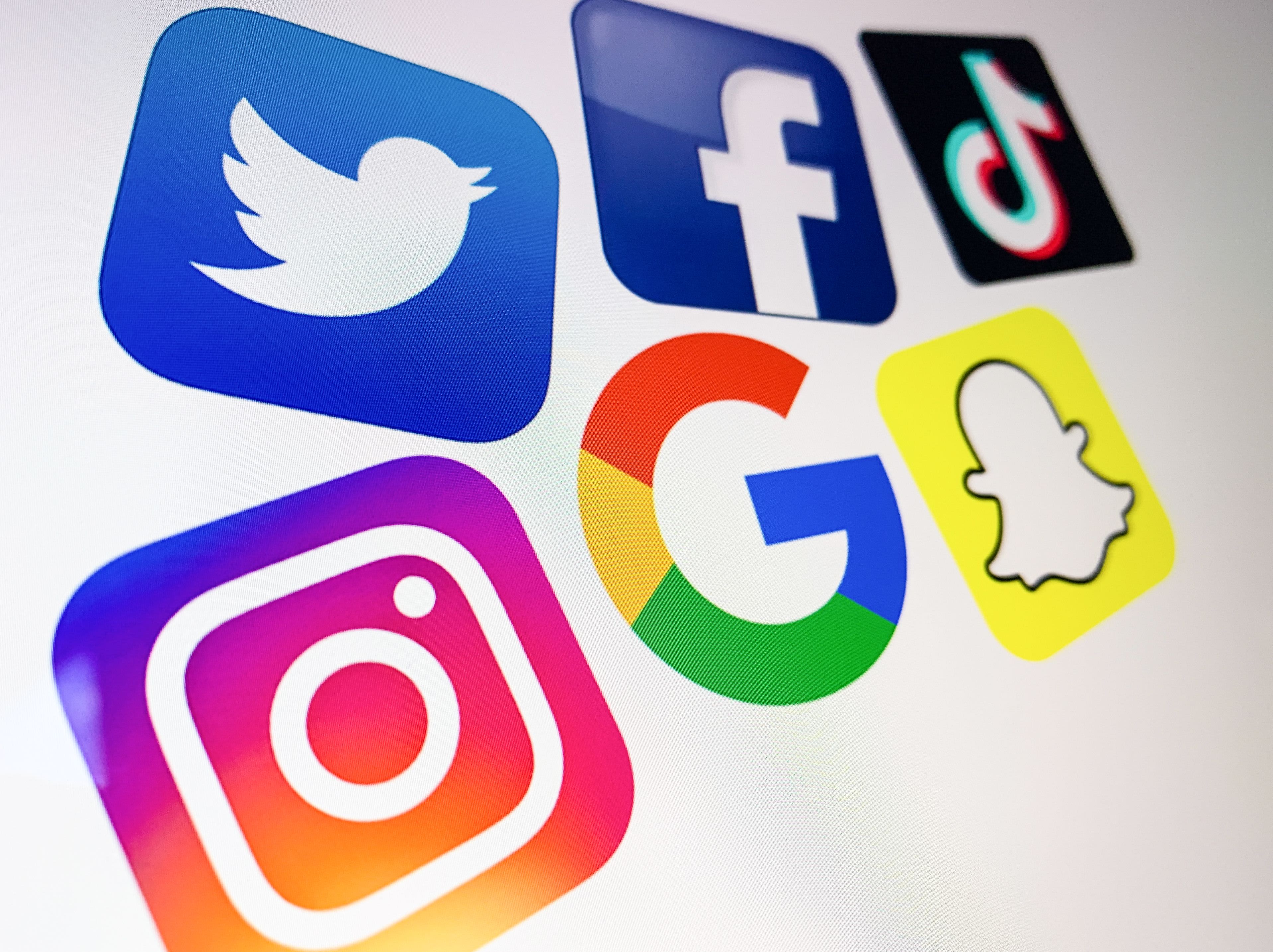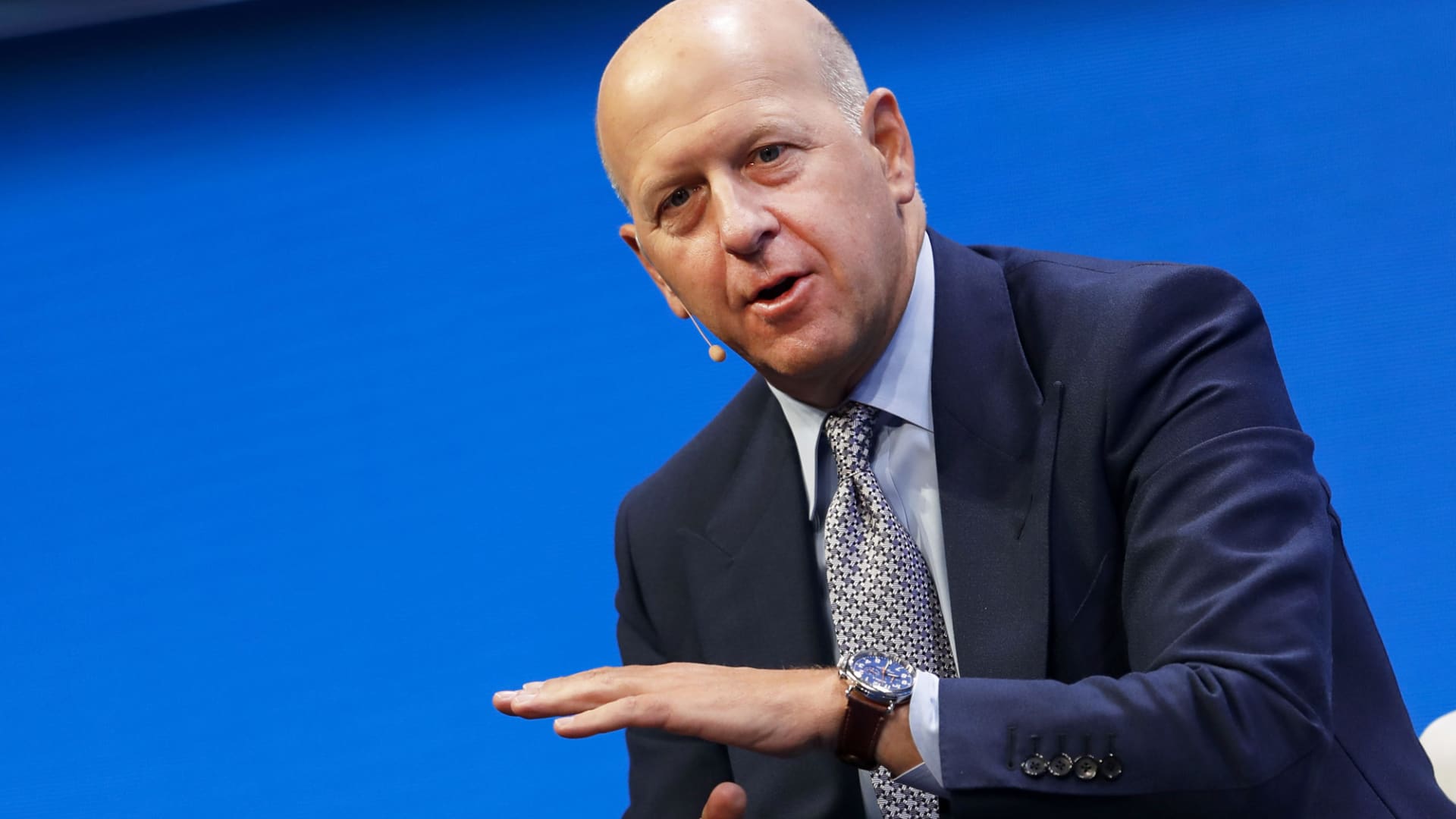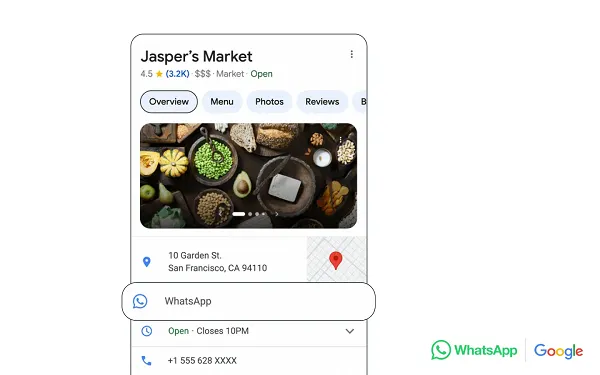Facebook, Google and Amazon are reaping the benefits from advertising's pandemic hot streak
Digital advertising's hot streak appeared to have lasted into the first quarter as travel starts to return and e-commerce spend persists.

The logos of Google, Facebook, Instagram, Twitter, Snapchat and TikTok displayed on a computer screen.
Denis Charlet | AFP via Getty Images
Digital advertising's hot streak appeared to have lasted into the first quarter as travel starts to return and e-commerce spend persists, analysts say.
Snap will be the first of the major ad-supported internet companies to report earnings on Thursday, while Alphabet's Google, Facebook, Pinterest, Twitter and Amazon will follow next week. These players have seen outsized benefit as certain stay-at-home trends have been accompanied by massive shifts into digital ad spend.
Bernstein analysts wrote that if the fourth quarter of 2020 was digital advertising's "perfect storm," then the first quarter of 2021, and perhaps the rest of the year, will be "hurricane season."
"Undercurrents supporting a strong digital ad year include an accelerating upgrade cycle from image to video, TV ad ripe for picking, and brand spend returning," they wrote. "Investor expectations for the 1Q prints are high across the board, though not without a little noise in the run-up to earnings."
Some digital ad players had been expecting impact of Apple's privacy change, which goes into effect next week, to have impact in the first quarter. Bernstein analysts noted that the "IDFA boogeyman mostly missed 1Q, but an imminent rollout of Apple's policy could well hamper 2Q guidance commentary and management Q&A."
The quarter also offered a time when some consumers were starting to spend on travel or return-to-work clothes, while others were still in lockdowns and were still looking for "distraction and delivery."
Industry analysts have said they've seen evidence of strong digital ad growth in the first quarter, in part due to heightened e-commerce spend that was helped by the latest stimulus checks. Meanwhile, search is expected to steadily come back throughout the year as travel brands expand budgets.
But digital ad-supported tech companies' earnings later this year will also show how likely certain trends that helped them soar during the pandemic, like e-commerce, will bear out in the future.
Evercore analysts pointed out that June will be the first tough comp quarter for e-commerce names and the ability of these "Covid winners" to maintain big growth will help determine if there is a permanent pull forward of demand.
Here's what else analysts have to say about the major ad-supported tech players as they prepare to report their first-quarter earnings.
Snap
Some analysts see Snap's revenue guidance for the first quarter as conservative since the company's management had previously indicated it expected to start seeing some impact from Apple's privacy changes in the quarter. J.P. Morgan analysts said they believe Snap's revenue guidance of 56% to 60% growth should prove conservative.
Evercore analysts echoed that, saying that the 60% growth could be potentially conservative given positive channel checks and given the fact that the company said growth could be in line with the fourth quarter if momentum continued. They mentioned that Snap's acquisition of Fit Analytics, which helps consumers pick the right size of clothing when they shop online, is consistent with Snap's strategy to materially ramp up monetization using augmented reality.
"Examples include Snap's partnerships with Clearly (eyewear retailer), Levi's and Estee Lauder which all benefit from the 'trialability' that AR uniquely delivers," they wrote. "While we believe FB and PINS are better plays on the Social Commerce wave, we are increasingly appreciative of SNAP's potential to participate."
Wedbush analysts said that Snap more than doubled its advertiser count year-over-year in the fourth quarter of 2020, showing an inflection point for Snap as product investments are bearing fruit. But they still see room to grow.
"Snap has made material improvements in its ecommerce offerings, but is still in the very early stages of what we view as a long-term opportunity in social commerce, particularly through its augmented reality offerings," they wrote.
Canaccord Genuity analysts said they expect another quarter of strong ad growth for Facebook, at 33% year-over-year. They wrote that would be consistent with management expectations that the ad revenue growth rate would remain stable in the first half of 2021 as any easing of e-commerce tailwinds are offset by easier comps.
Evercore analysts believe that 33% year-over-year is potentially conservative, and foresee a 35% year-over-year growth. "As a side note, we believe that the very robust small business formation in the U.S. over the last 6 [to] 9 months has also been a big new driver of ad revenue growth for FB," they wrote.
Wedbush analysts recently initiated coverage for Facebook with a neutral rating, citing headwinds from stronger privacy standards.
"We're bullish on the commerce initiatives Facebook is building into its platform," they wrote. "While we do expect continued strength in those areas, a rebound in the overall ad market, and a continued shift towards integrating commerce into the platform, but are also balanced by our view that Facebook is the most exposed to privacy risks, particularly around Apple's App Tracking Transparency (ATT) efforts that will limit the Identifier for Advertisers, or IDFA."
They wrote that what has been Facebook's biggest competitive advantage could turn into a near-term headwind as the digital ad world recalibrates around new privacy standards.
"We're not making a call of Facebook's impending demise, but believe as the privacy landscape changes, there could be a more relative share gain from smaller digital platforms which also have strong commerce functionality," they wrote.
Analysts foresee Google's ads business as seeing a strong first quarter, given a rebound in search and brand advertising along with continued momentum for YouTube ads.
Bernstein analysts noted that YouTube ended 2020 on a "phenomenal note," growing its ads business 46% year-over-year in the fourth quarter. With a rebound in brand ad spend and strong user engagement, "the party should continue in 1Q and we forecast a 50% Y/Y growth rate for the quarter."
"The $60 [to] $70B US TV advertising market poised to finally go digital and the channel checks corroborate as much," they wrote. They said YouTube may be best positioned to capitalize on this growth, with premium services like YouTube Select and traction on shoppable advertiser offerings on the platform.
Canaccord Genuity analysts said they expect Google's fourth quarter growth will continue momentum into the first quarter as consumer activity normalizes and the vaccine rollout likely drove increasing search interest for travel. Analysts foresee a 24% year-over-year total ad revenue growth.
Evercore analysts also see the street's ad revenue growth expectations of 22% year-over-year as conservative. They expect to see a 27% year-over-year growth in ad revenue.
"We believe Google's exposure to Travel and strong positioning in Local (i.e., physical stores) will provide tailwinds for ad revenue growth under a reopening scenario," they wrote.
They added that online retail sales growth will mean positive numbers for e-commerce ad budgets, which are a top vertical for Google. On top of that, they wrote TSA data shows a positive inflection in volumes from the beginning of March to April. Evercore analysts estimate travel had been 10% and 15% of Google's pre-Covid ad revenue.
Mizuho said in a note that industry checks with a major agency showed Google's U.S. search spending growth has accelerated. Travel growth, in particular, moved from -20% year-over-year in the fourth quarter 2020 to 5% in the first quarter of 2021, the note said.
Amazon
Evercore analysts said they foresee Amazon's ad growth to be 64% in the first quarter, flat versus the fourth quarter. Mizuho analysts agreed, saying that recovery in discretionary categories are being offset by pullbacks in essential products.
"Although we anticipate an in-line quarter, Amazon is focused on brand advertising this year with its DSP, or Amazon Display network," Mizuho analysts wrote. "The potential appears compelling as Google generates 20% of ad revenues from its display network."
All eyes are on Amazon this year, which just cracked a 10% share of the U.S. ad market last year and is expected to keep on taking share. Amazon's ads business is poised to keep growing if the adoption of e-commerce ad budgets stays steady.
Pinterest has been another digital ad beneficiary of the strength in e-commerce. The company has continued building out its advertiser tools and expanded globally, and Guggenheim analysts cited third-party data showing that the company has healthy momentum even as stay-at-home trends started to moderate in the first quarter and privacy impacts are uncertain.
"We see Pinterest as uniquely positioned, given a high-level of user purchase intent, and anticipate substantial investor returns as the company further capitalizes on this value proposition," they wrote.
Bernstein analysts said they foresee Pinterest's revenue growing 78% year-over-year in the first quarter, with a revenue estimate of $483 million.
"Management guided for low 70% Y/Y revenue growth for the quarter," they wrote. "While big accounts can always move the needle for PINS (positively or negatively), we've gotten good feedback from the long-tail of D2C advertisers engaging is shoppable pins ads. The Shopify integration that went live last year should also offer a touch more tailwind with the long, long-tail."
On the back of a return to brand advertising spend, Bernstein analysts expect Twitter to beat guidance of a 16% to 29% growth rate to reach 36% year-over-year.
In recent months, the platform has launched new products and shared progress on others, including a test for "shoppable" tweets and an integration with Nielsen to help advertisers measure audiences and outcomes on Twitter's video ads.
"One of the company's key drivers to achieving this will be diversifying its advertising revenue base to include a greater contribution from direct response, and management will likely provide an update on how the rebuilt MAP platform has performed over recent months along with its efforts to attract more SMBs to the platform," Canaccord Genuity analysts wrote. Those analysts foresee a 29.2% growth in advertising year-over-year.
CNBC's Michael Bloom contributed reporting.

 JimMin
JimMin 
































